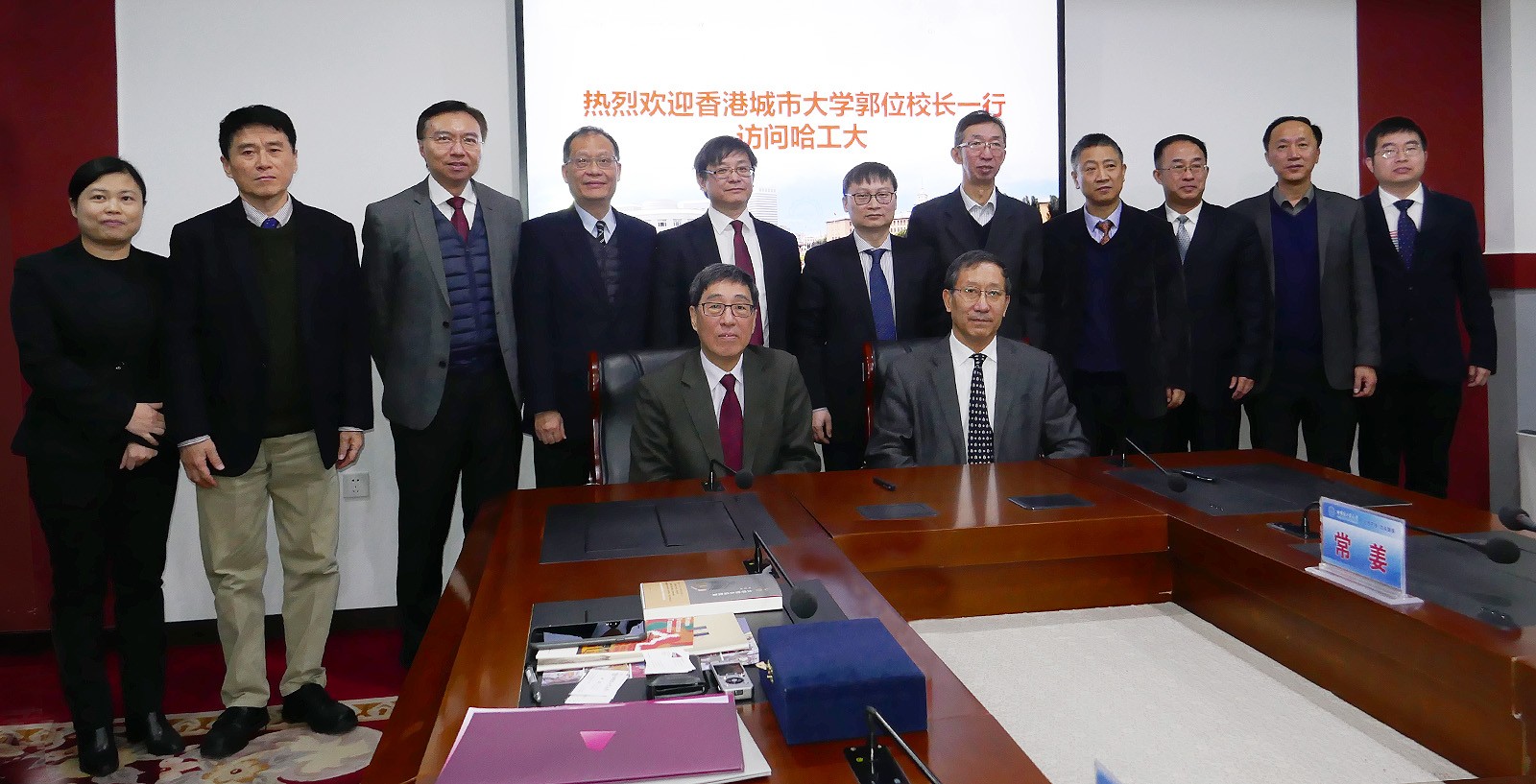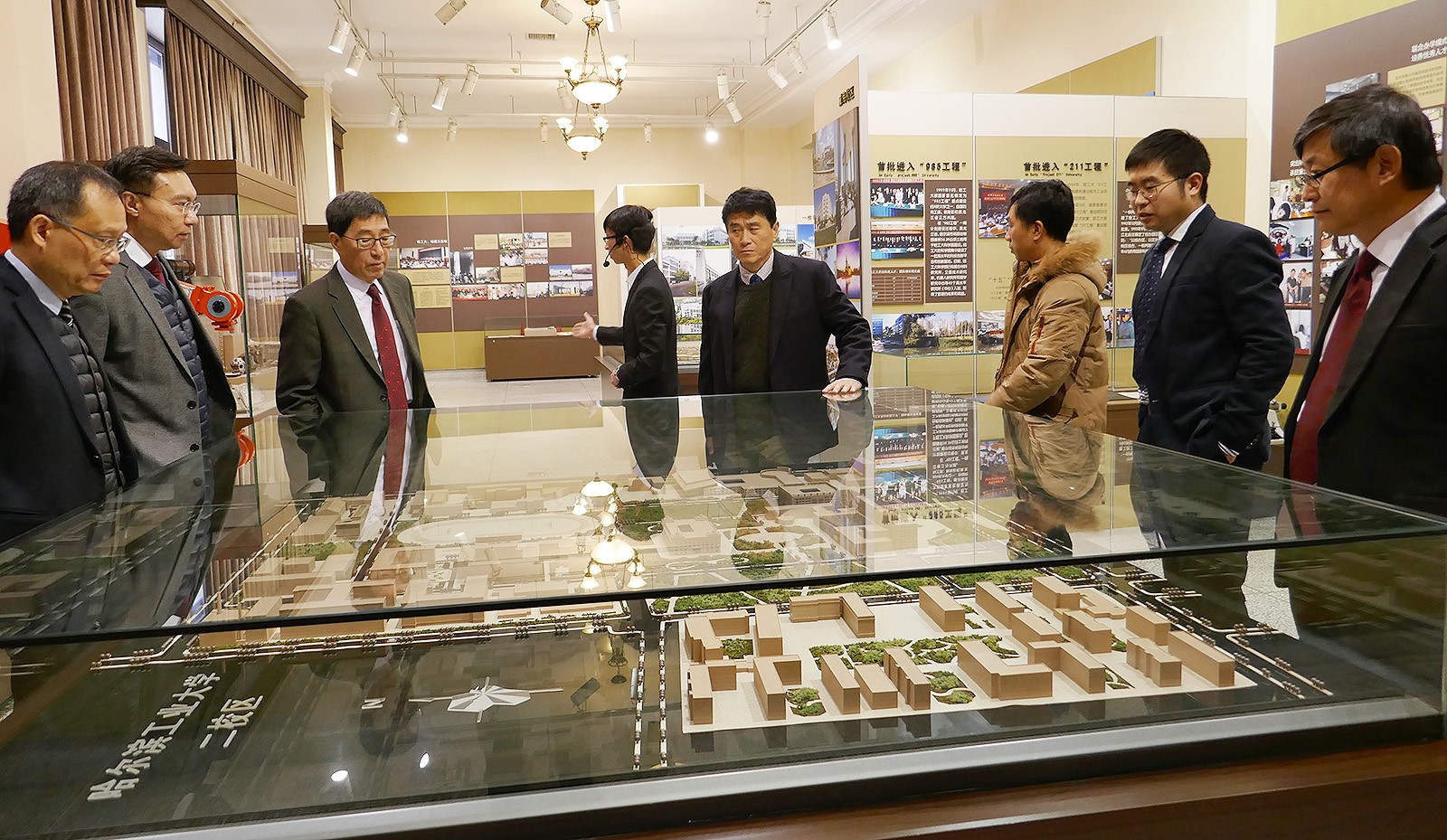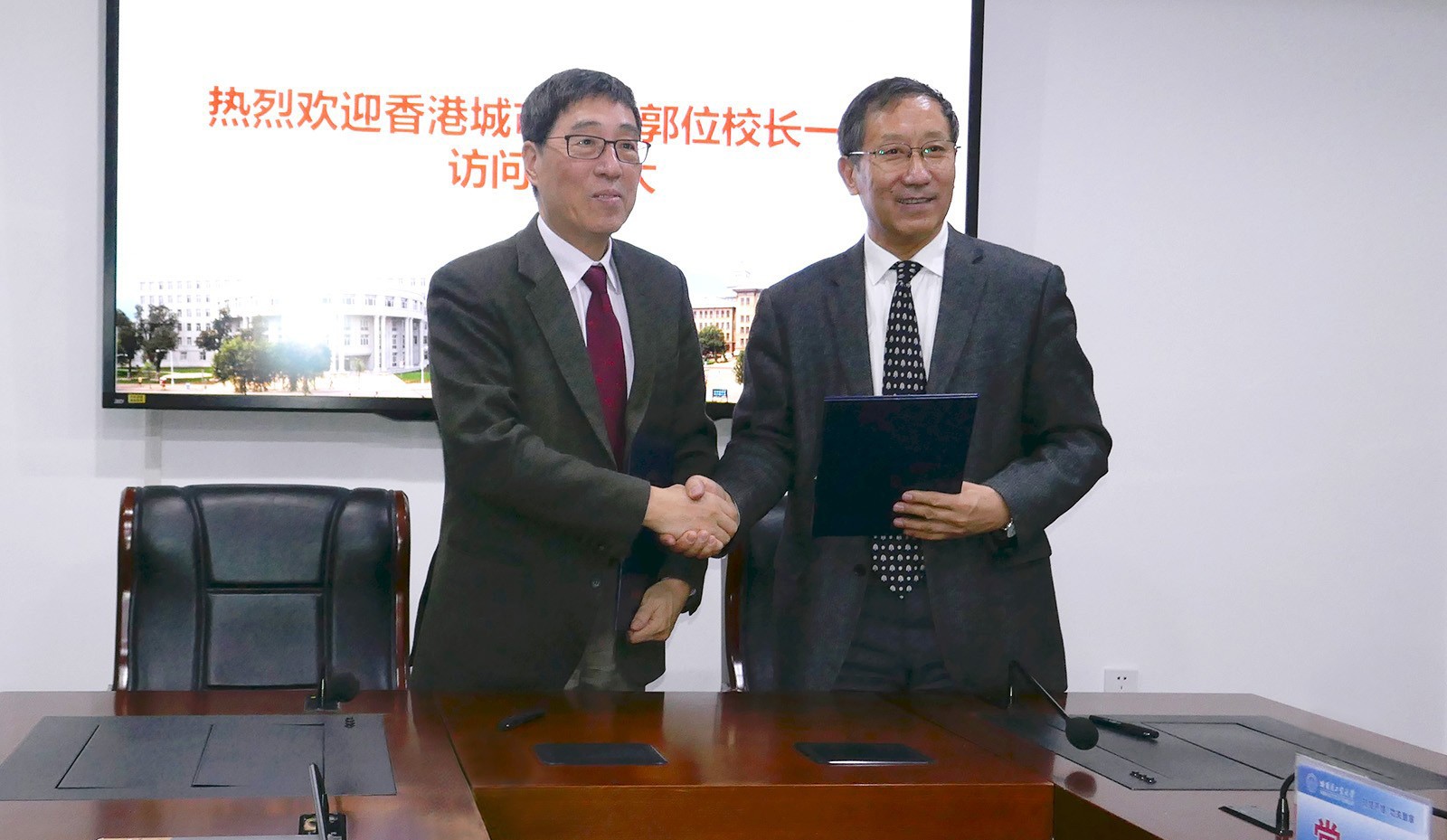New MOU enhances collaboration between CityU and HIT
A memorandum of understanding (MOU) signed between City University of Hong Kong (CityU) and Harbin Institute of Technology (HIT) on 8 January will enhance academic exchange and research collaboration between the two institutions.
A CityU delegation led by Professor Way Kuo, CityU President, met with Professor Zhou Yu, HIT President, Professor Ren Nanqi, Vice-President (International Exchange and Collaboration), Professor Han Jiecai, Vice-President (Research and Technology), and Professor Fan Hongbo, Executive Vice-Minister of International Collaboration, during the visit.
Members of the CityU delegation included Professor Lu Jian, Vice-President (Research and Technology), Mr Sunny Lee Wai-kwong, Vice-President (Administration), Professor Paul Lam Kwan-sing, Chief-of-Staff, and Professor Li Duan, Associate Provost (Strategic Planning).
During the meeting, Professor Zhou spoke highly of CityU’s education philosophy and internationalisation efforts. He expressed his gratitude to CityU for providing insights and useful references on scientific innovation.
Professor Kuo praised HIT for nurturing talent over the years, particularly in the discipline of aerospace engineering. He wished to deepen collaboration with HIT as CityU also emphasised the application of science and technology research.
CityU and HIT have arranged numbers of visits and academic exchange between faculty and administrative staff members through collaborative agreements and projects signed and launched at college/school and departmental level since 1997. The new MOU will further strengthen the alliance.
The MOU covers the arrangement of exchange activities between students, academics, researchers and administrative staff, as well as the enhancement of research collaboration and the sharing of outcomes. It also explores the possibilities for joint degree programmes and training workshops.
Before concluding the visit, Professor Kuo delivered a talk to HIT’s managerial staff titled “The Soulware within Higher Education” in which he shared his ideas about the importance of the integration of research and teaching as well as the concept of “soulware”.


